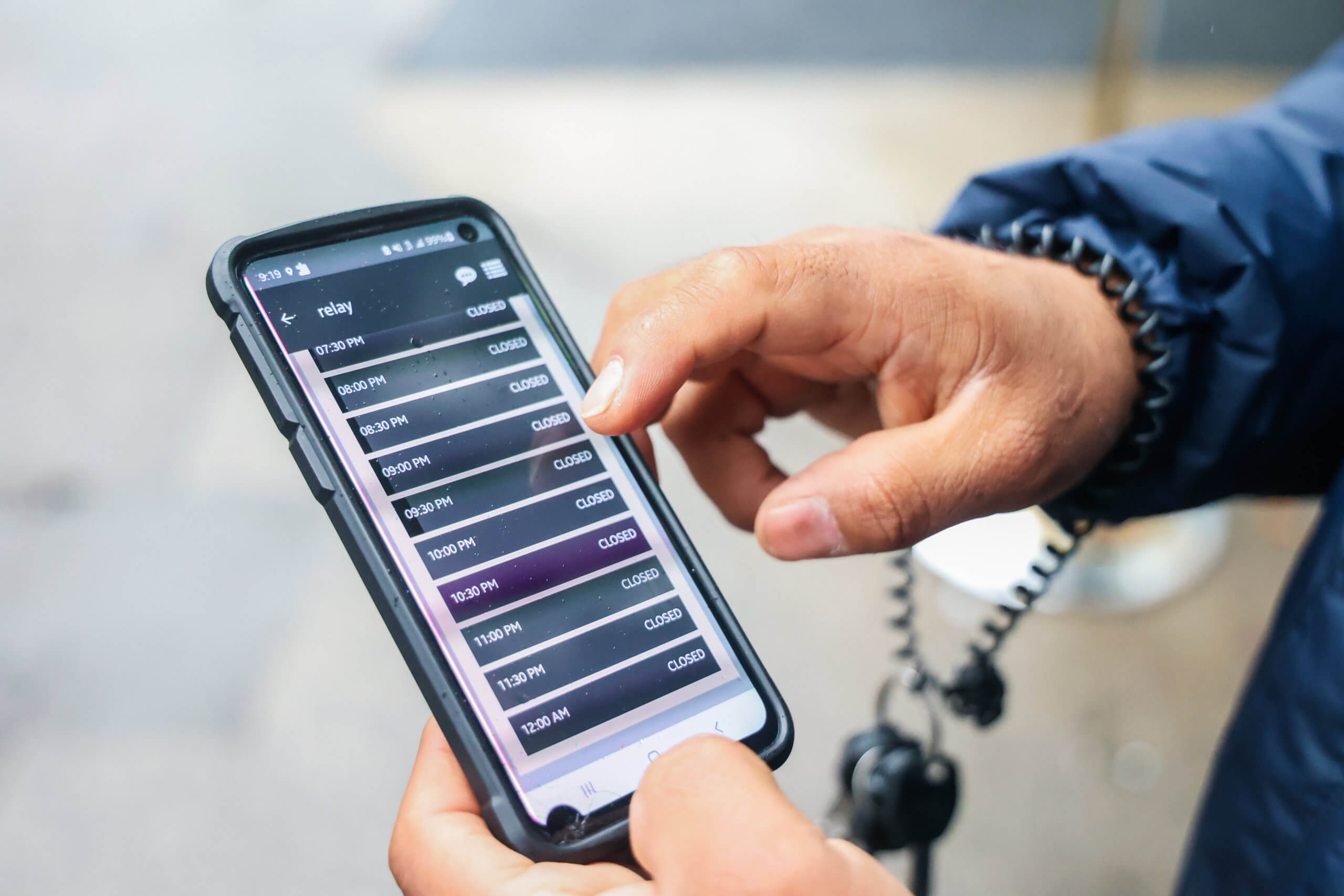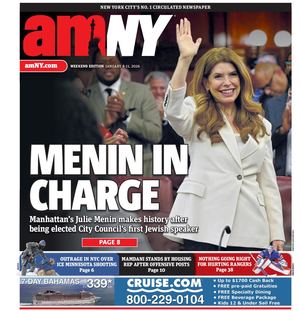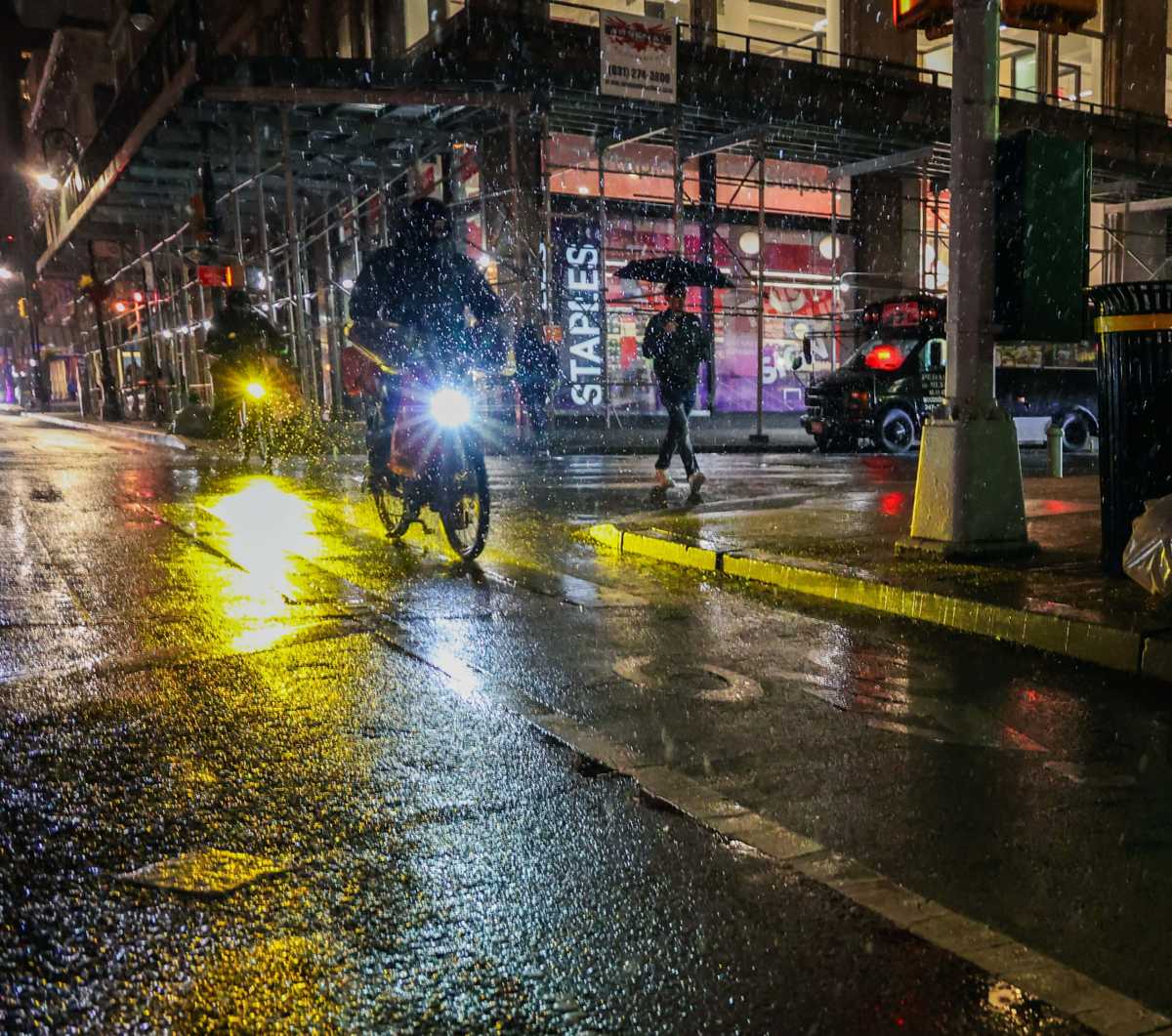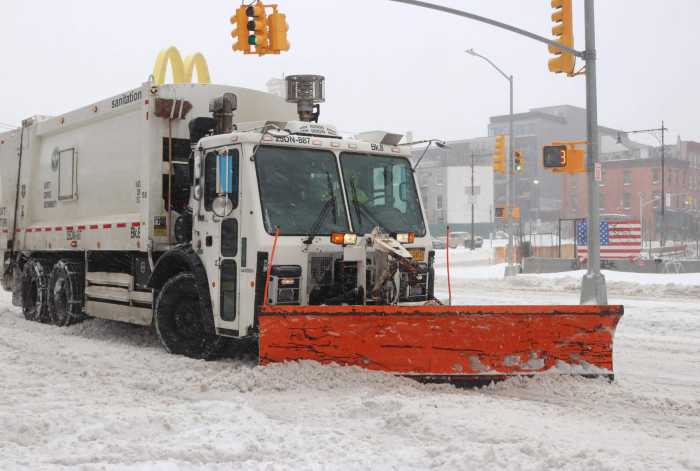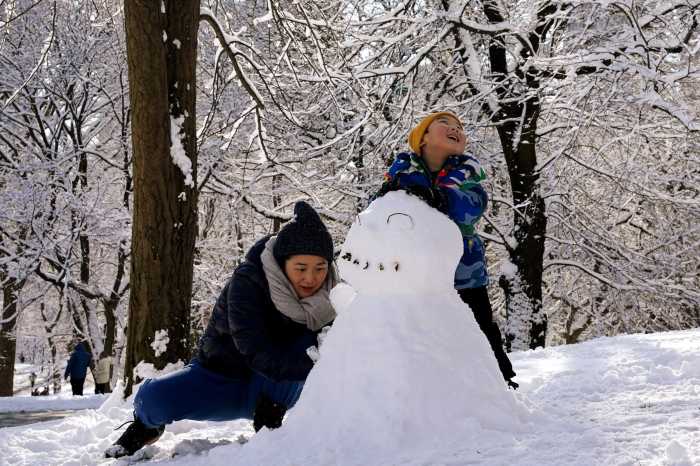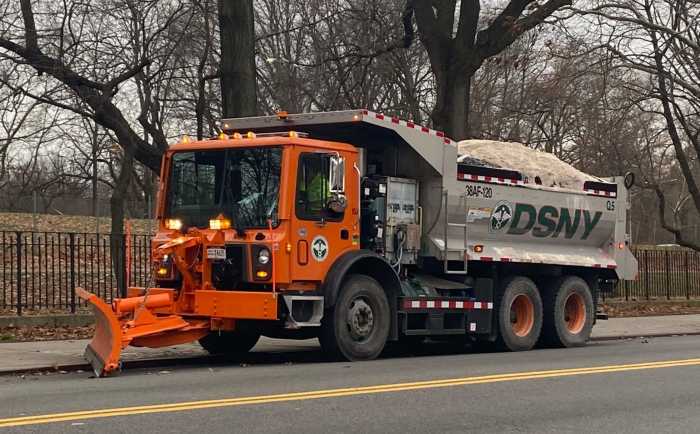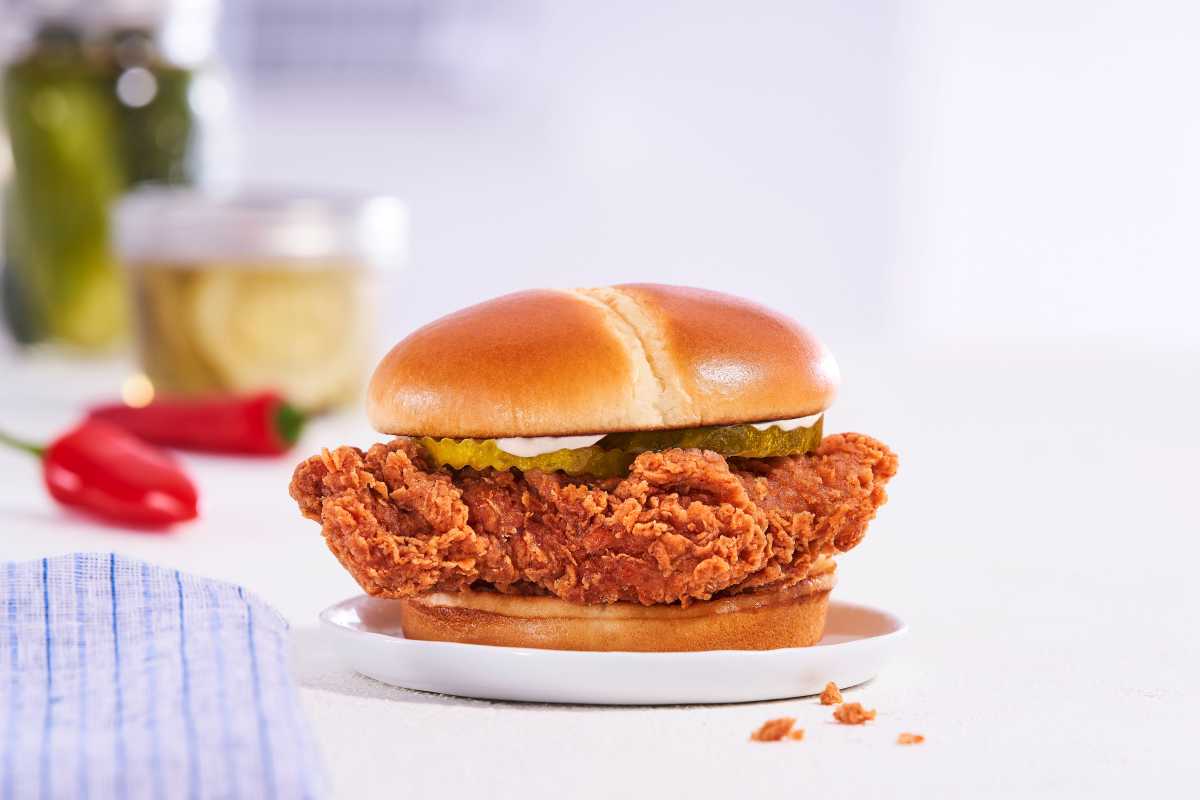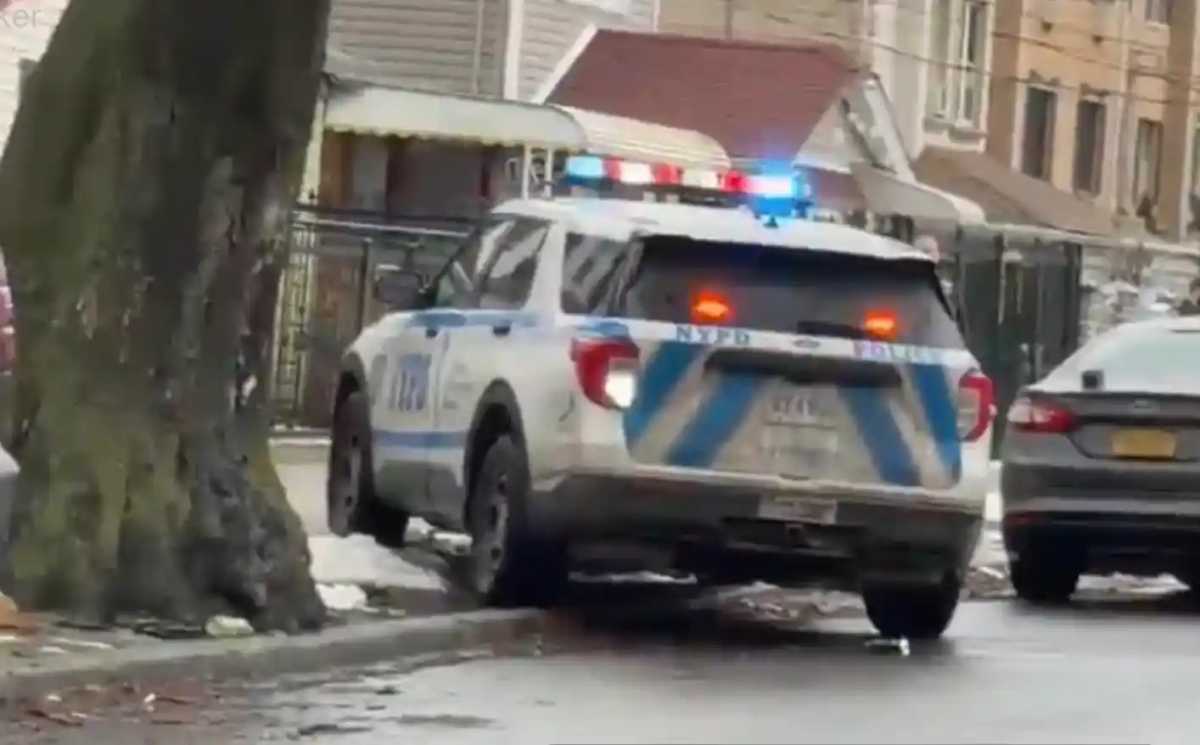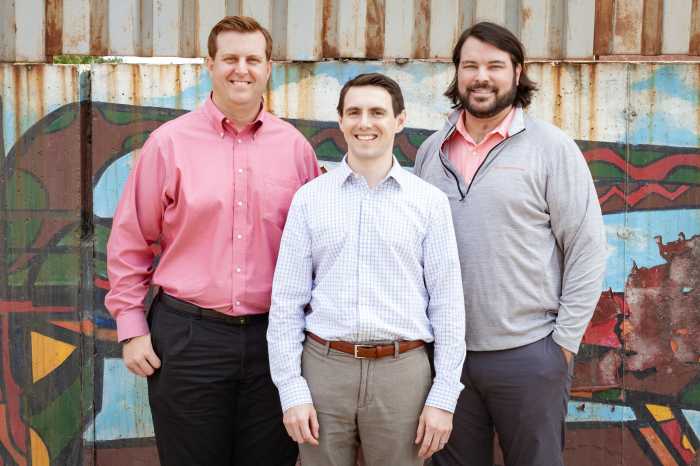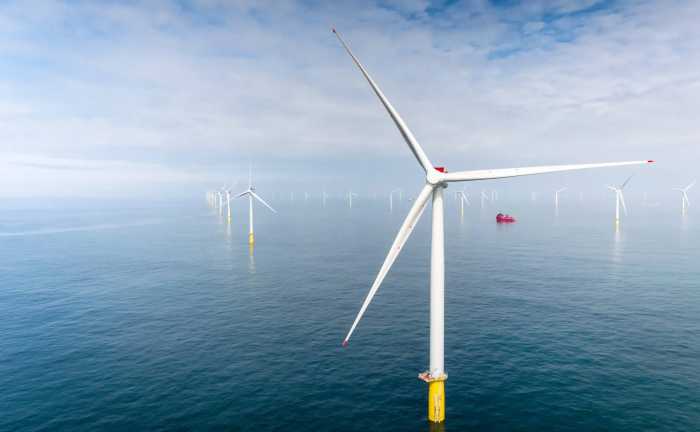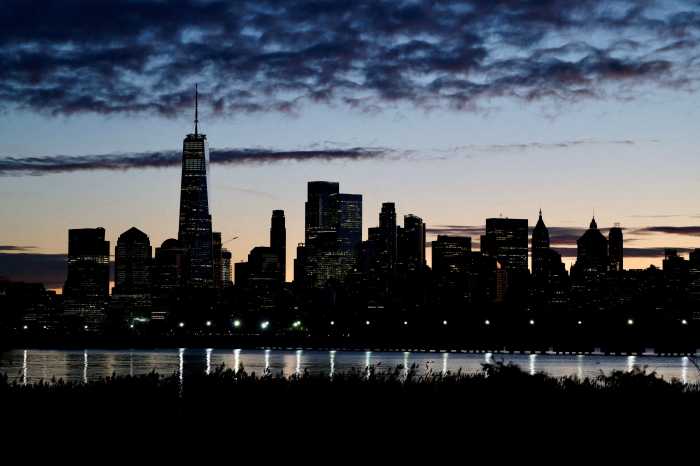On Monday night and Tuesday morning, amNewYork Metro followed delivery workers as they strove to carry out the orders of New Yorkers, just as the year’s first major snowfall began to drift over the Big Apple.
While the sight of thousands of meandering snowflakes falling from the night sky is a whimsical and exciting prospect for many after a near record-breaking drought that lasted almost two months in 2023, a blizzard is a bad omen for delivery workers who must power through the storm.
According to Business of Apps, the U.S food delivery service is expected to jump to a $43 billion industry by 2025. This growth has been a rapidly skyrocketing one that came in leaps and bounds over the course of the COVID-19 pandemic and has not slowed since. Like modern day inventions such as the internet, having meals delivered to the doorstep has transformed from a luxury to a necessity for many—especially on snowy nights that keep the majority of city dwellers off the streets and in their homes. However, the meals don’t arrive by themselves.
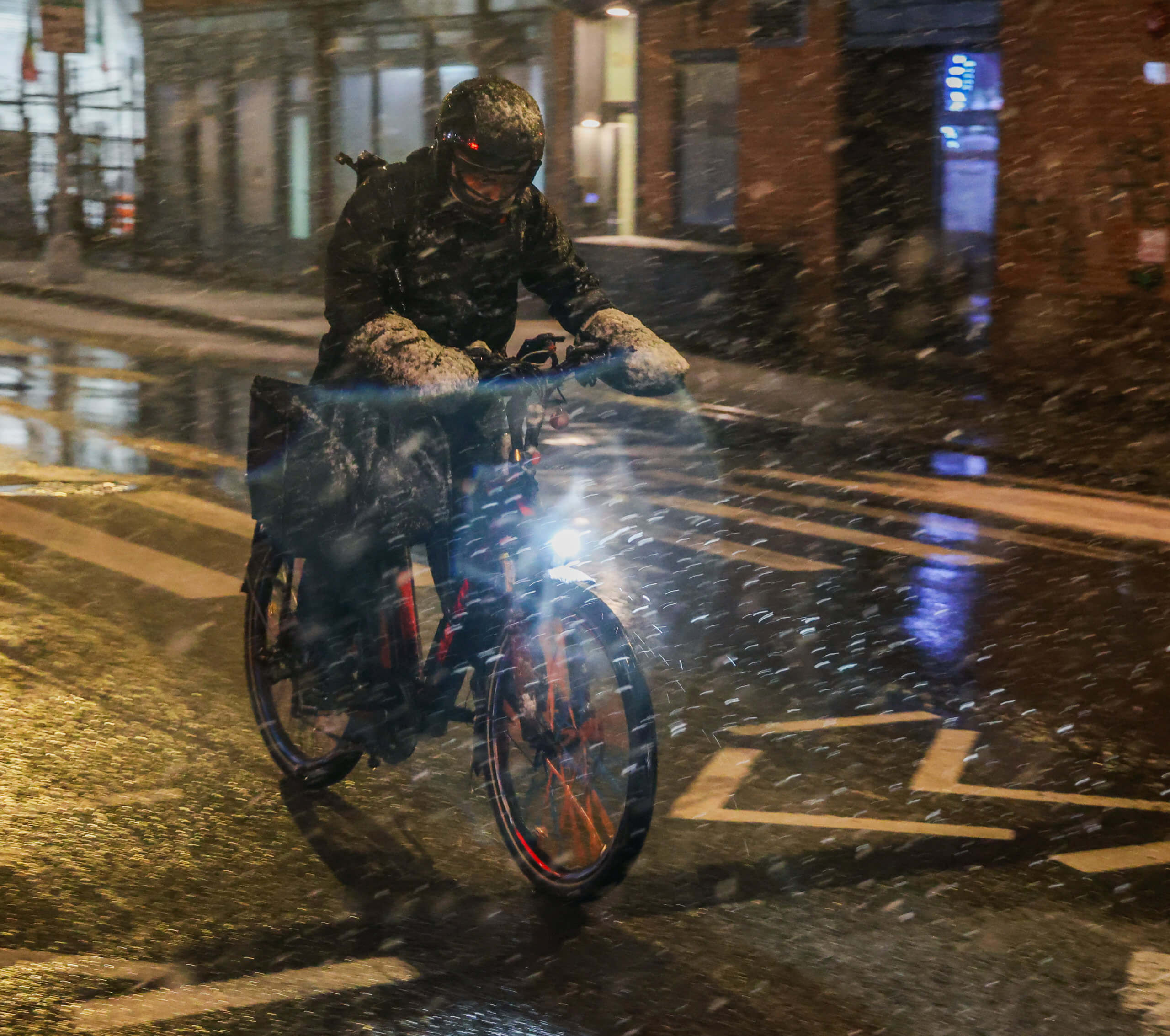
The workers on whose backs this lucrative trade rests revealed the startling hardships that go into working in a snowstorm and the money—or lack thereof—they are rewarded for surviving it.
Beginning at 7 p.m. in Midtown on 48th and Broadway, amNewYork Metro trailed after the workers as they rode their bikes through the squall. A primarily immigrant workforce, many of these workers rely solely on their bikes in order to survive and they put that livelihood at risk by laboring through the deluge, wind, and low visibility.
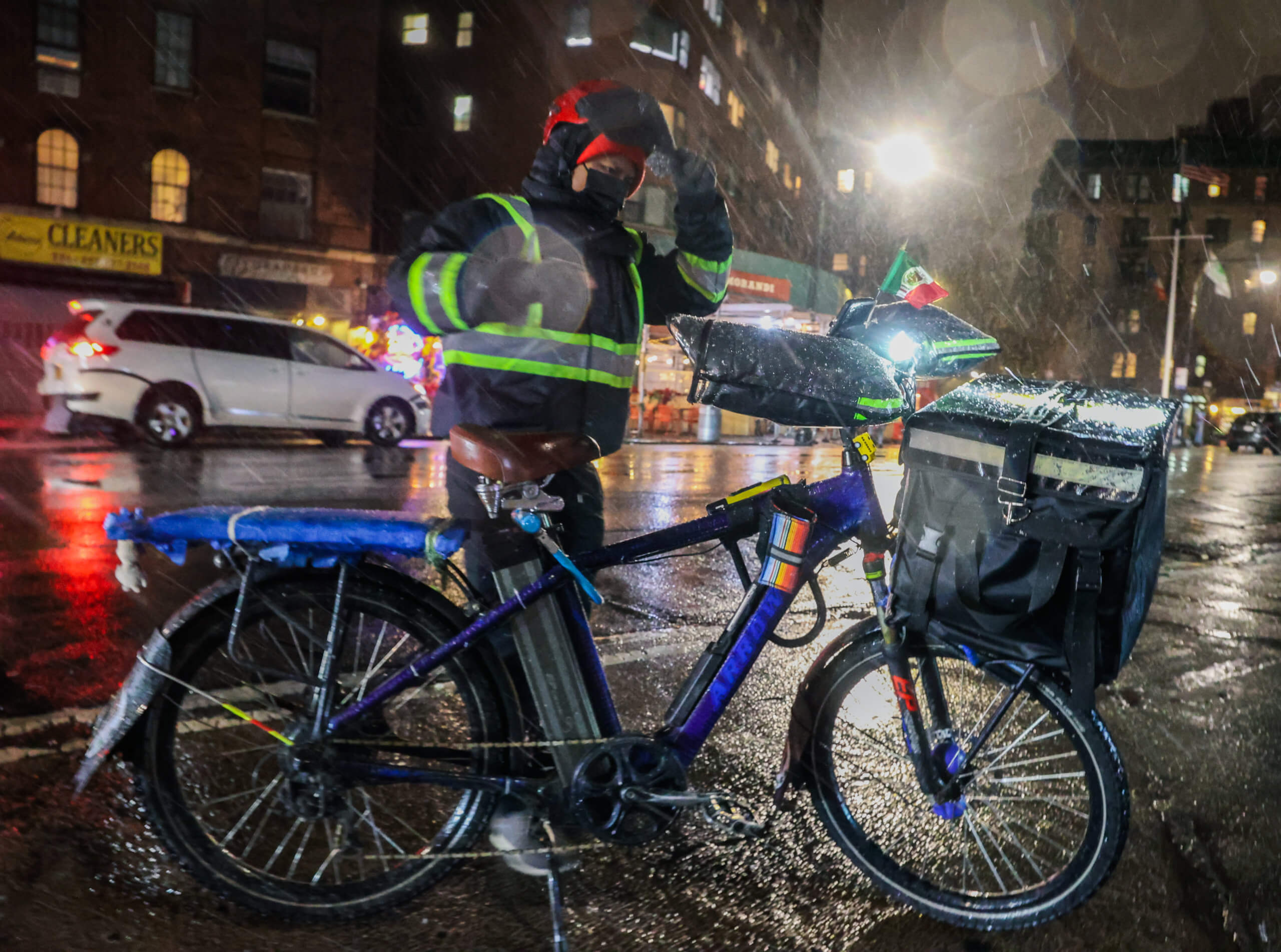
“I can’t see. Too much water coming inside [the helmet], I can’t really see. I see a little bit but not one hundred percent for sure,” delivery worker Sergio Solano said through his visor as he strove to make his orders on Pearl Street and 7th Avenue.
These workers not only say they put their livelihoods on the line, they also put their very lives in jeopardy due to potential accidents. Despite the first day of snow starting to blanket the city, Solano pointed out that those placing their orders from home care very little about the gale’s impact on the delivery drivers. Amidst the flurry, he showed amNewYork Metro that he was due to deliver an order worth $4.92, of which he would only make $1.92 in tip. Solano declared that it is almost not worth the cost to work for such little pay, yet he doesn’t have much of a choice. He also explained that despite the hardships, very few people attempt to make up for it in monetary remuneration.

fatalities. Additionally, a survey by Los Deliveristas/Workers Justice Project-Cornell found that the hazards of this field on not just the roadway, but approximately 54% have been victims of bike theft and 30% were physically assaulted during robberies. Photo by Adrian Childress
“Customers rarely tip extra. The truth is sometimes you don’t want to work because of the low pay,” Solano said. “It’s just that it is complicated for all of us no matter how many clothes we wear.”
Still, Solano who hails from the Bronx and works for multiple delivery services, soldiered on. Whizzing by outdoor dining sheds and motorists through the West Village and Lower East Side, Solano began to feel unwell and had to return home by 10 p.m.
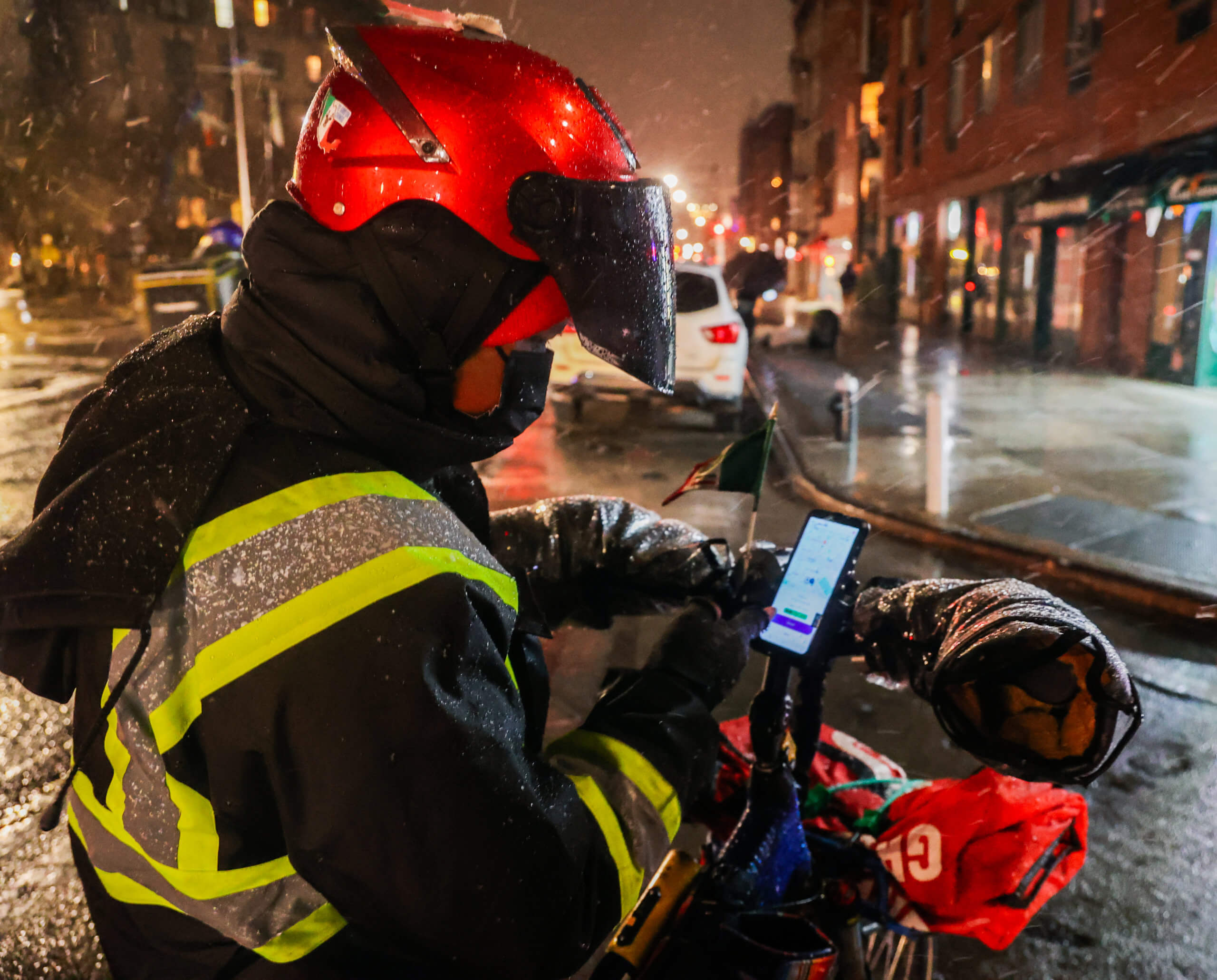
Fellow worker Vincente Carrasco works for the app service Relay and strove to run deliveries both during the night and in the morning. According to Carrasco, the app Relay offers workers scheduled time slots for running deliveries, with only 38 hours permitted maximum. Short of his hours, Carrasco told amNewYork Metro he will scramble to work in the worst weather in order to make up these hours, creating a drive to drive in the snow.
“They give me 38 hours—that is it. Right now, I have 29. Sometimes if they are busy, they will give me more,” Carrasco explained as he showed each time slot that had been taken by other workers.
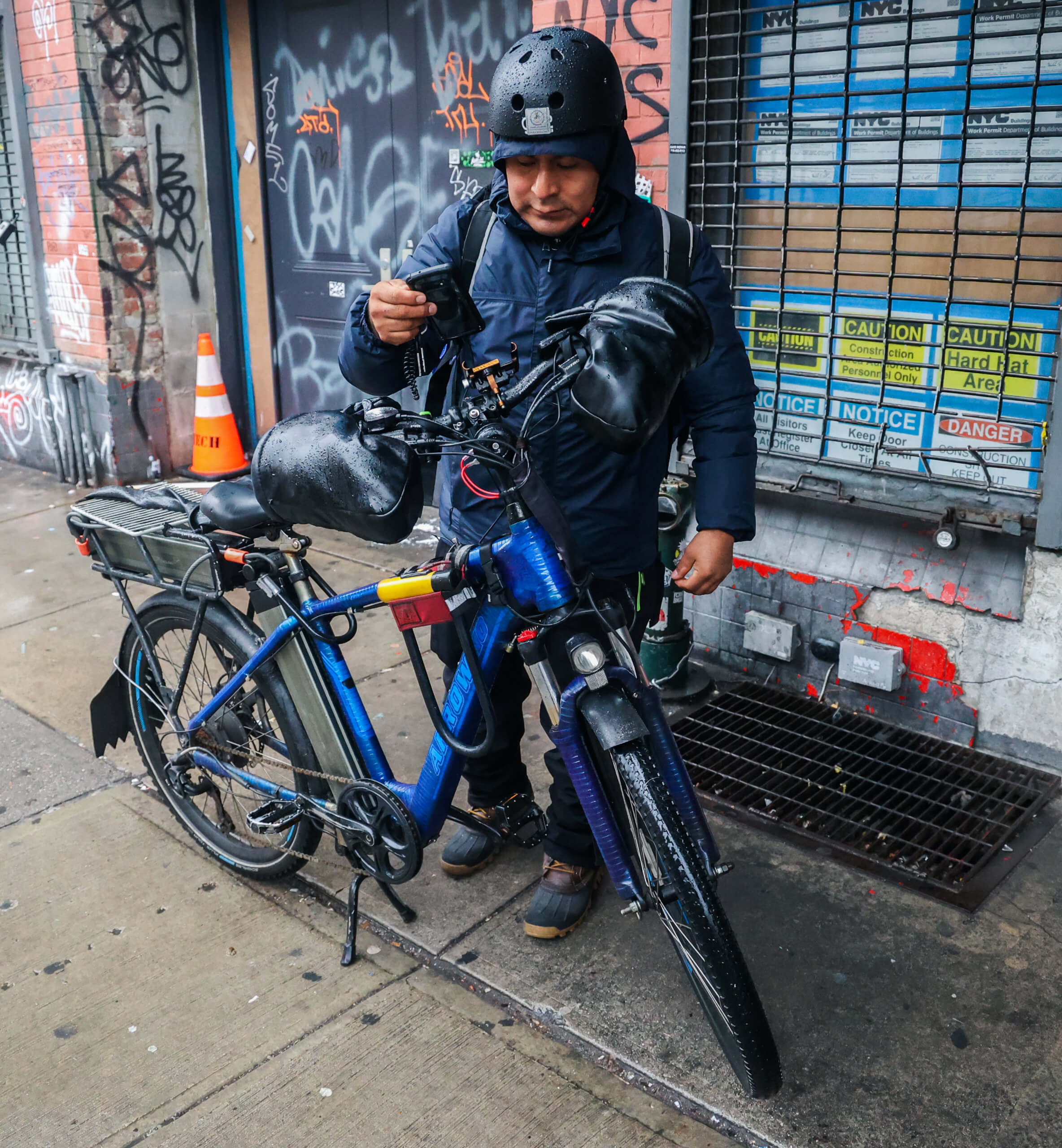
Although the snowfall turned to a sludgy rain, the plight of those striving to bring meals through inclement weather to those dry on the inside continues to show a racial, ethnic, and economic disparity in which those doing the work are seemingly not paid a healthy living wage.
A study by Dynata found that 65% of consumers are willing to pay more for faster deliveries, with a special emphasis being placed on safety. However, until that happens, workers say they’ll have to continue putting themselves at risk in order to make ends meet.
